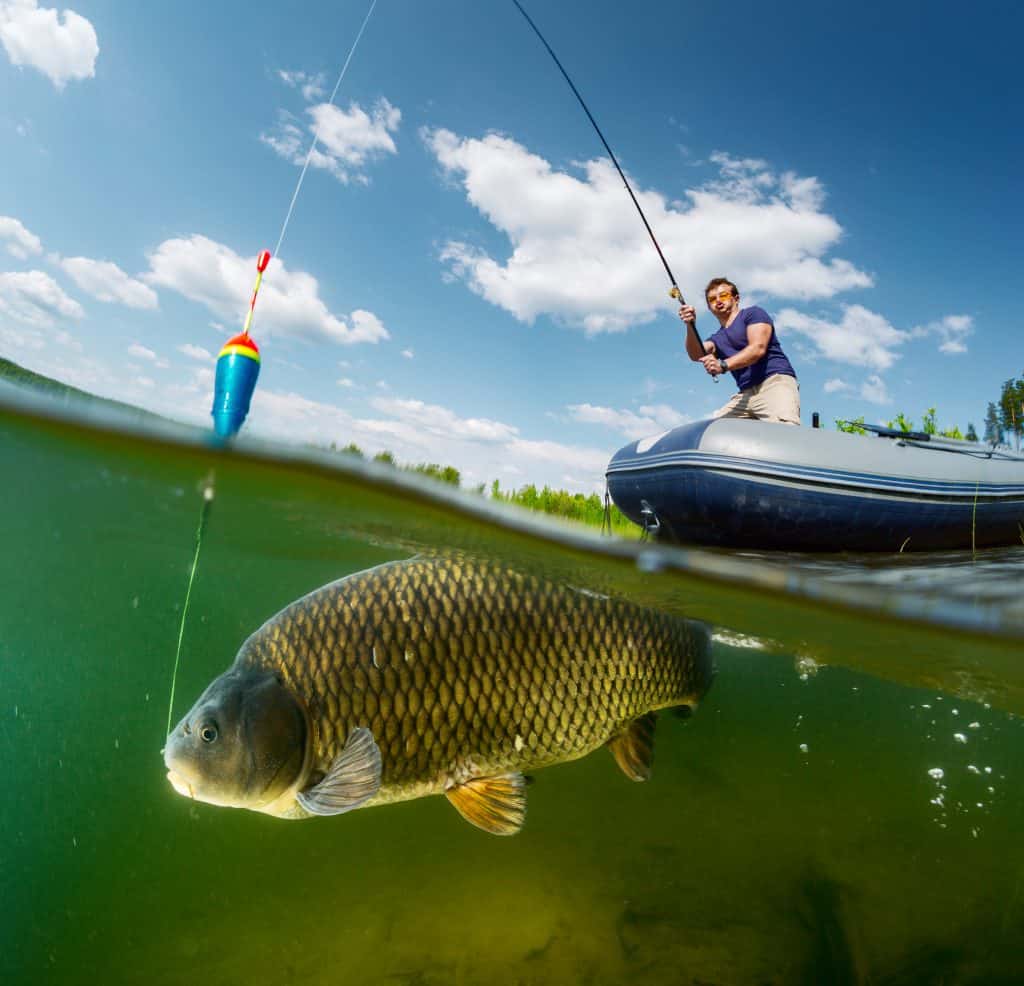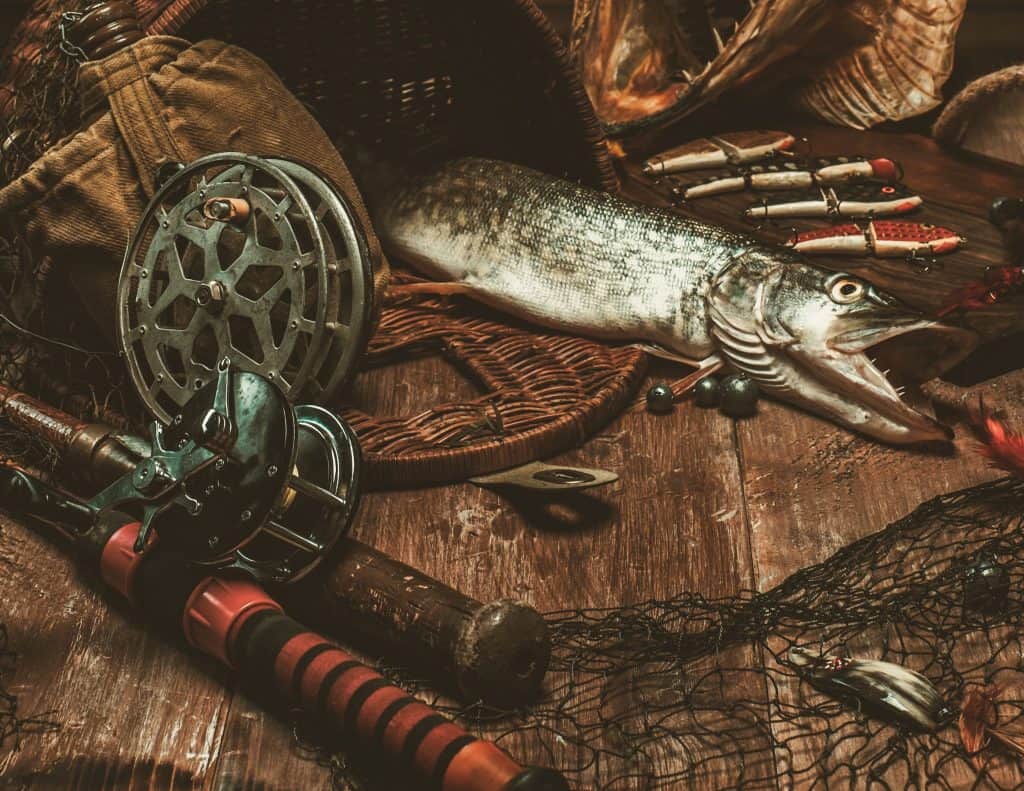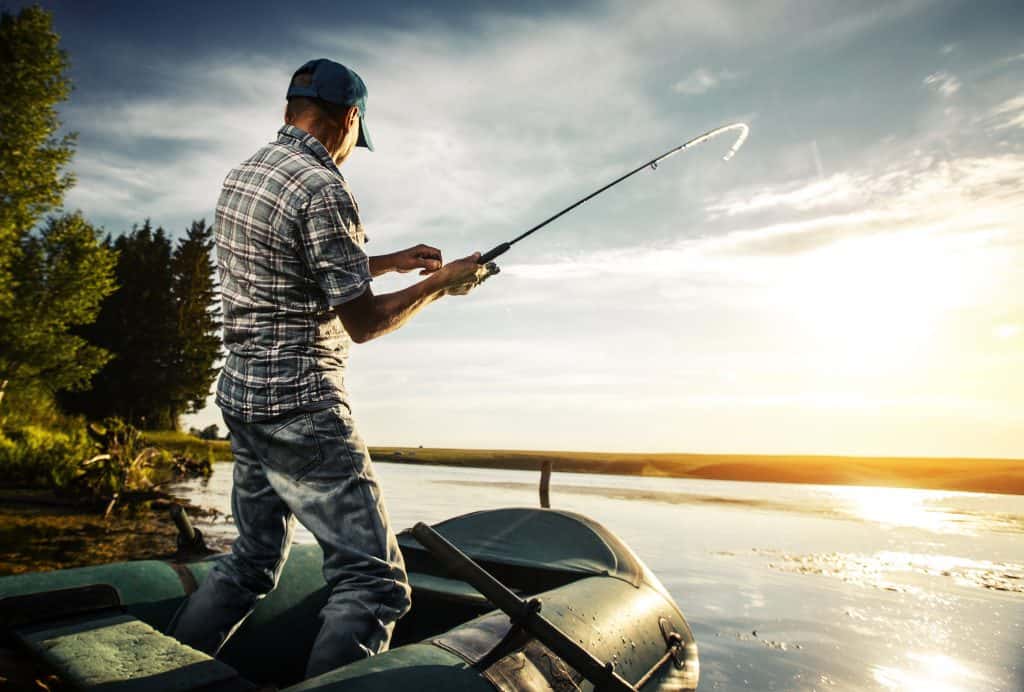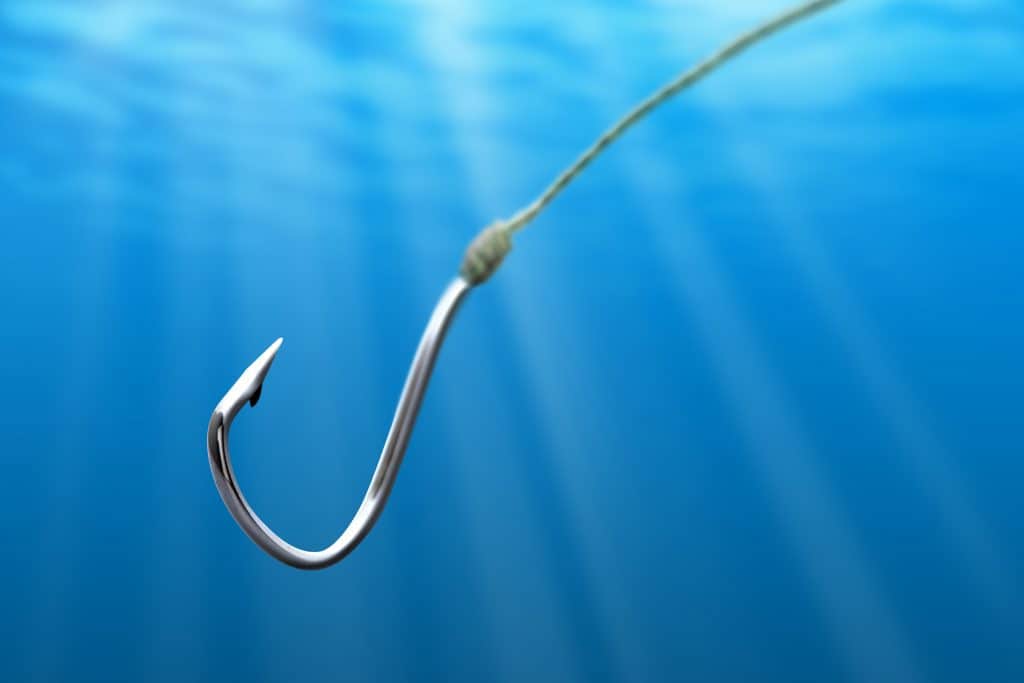
My brother was the first of my siblings to learn how to fish, as a little girl it seemed to me that fishing may be cruel and unnecessary. Now after some more research, I understand the truth of the matter.
So is fishing cruel to the fish? Researchers have weighed in on the matter by stating that fish do not feel pain. This is due to the fact that their brains are not as advanced as a human’s. While fish do in fact have “nerve endings” of sorts, these do not trigger a pain impulse, but rather a response to the potential threat.
Even with scientific research weighing in on this debate, there are still great concerns voiced by the “anti-fishing” community. Groups such as PETA, want to empower people to revolt against the fishing industries.
In the rest of this article, I will not only discuss the structure of a fish compared to that as a human, but also how they respond to threats, the arguments both for and against fishing, fishing as a sport, and a summary on other animals that do not feel pain.
The Structure of Fish Compared to Humans
The structure of a fish and the make-up of a human body have some similarities. These similarities, while in small quantity, are still fascinating and have led to many discoveries through scientific research.
Humans are designed with nerve endings that span across the entirety of our bodies. These nerve endings connect to each other and eventually to the brain through connections in the spinal cord (hence why it is important not to damage your spine).
The nerves running throughout our bodies operate using small electrical signals which are sent back and forth rapidly from the brain.
The specific area of the brain that monitors and “decodes” these electrical signals is the cerebral cortex, also known as the neocortex. When signals arrive in this area of the brain, the received signals are processed and the threat is assessed.
We humans also have the ability to feel emotional pain, which is a much longer and complicated explanation (but fascinating all the same!).
However, there is a major difference in the structure of a fish and a human that has lead researchers to believe fish do not feel pain as we do.
Fish are also created with these “nerve endings” that connect to the brain. When a signal is sent from these endings to the brain, a fish reacts to avoid the danger and potentially escape any threat. They do not feel physical pain in the same way that we do though.
How Fish and Humans are Different

As I stated before, humans are designed with a cerebral cortex that interprets signals and notifies the body of the sensation we call “pain.” It is through connections between this section of the brain and the endings of the nerve pathways that we are in fact capable of this sensation.
However, the major difference between the structure of fish and humans is that: fish do not possess a cerebral cortex (neocortex). It was this reasoning that led scientists and researchers to believe that fish are not capable of feeling pain as we do.
They argue that fish react to “uncomfortable situations” such as being on a hook as they more as an unconscious reaction to avoid potential threat than to any sensation of pain.
As research continued, scientists found that many fish either do not possess the necessary nerve fibers (c-nociceptors) to communicate pain to and from the brain or have such a limited amount that pain could not be communicated in an efficient matter.
It was with these findings that scientists, researchers, and fishermen alike came to the agreement, that fish either do not react in a “human way” to the sensation of pain, or they do in fact not feel any. Rather, fish react instinctively to the received signals, not in a response to pain.
Argument Against Fishing
There are many organizations out there that argue against the common practice of fishing. One of the most notable organizations is the “People for the Ethical Treatment of Animals,” or “PETA.”
This organization focuses on revealing the potential damage that fishing can cause to fish and the damages of “fishing for sport.”
They start of their argument stating that fish do in fact feel pain. Since there is a presence of the c-nociceptors, then the fish must be capable of feeling the sensation of pain and suffering.
After describing this, they moved on to discuss how fishing as a sport has led to the depletion of some rivers and the requirement for catch and release. This catch and release method then leaves fish in that body of water repeatedly “traumatized.”
The more scientific argument against fishing lies in the potential damage to the fish. Catch and release can potentially lead to a “decrease in the fishes immune system,” if you will. This occurs when the fish loses their protective scaling, it makes them more likely to catch some illnesses.
As I mentioned above, there is the matter of improperly caught and released fish. For example, the correct way to remove a hook is to gently remove it from the hole in which the hook entered the fish.
However, if a fisherman is sloppy or the fish is simply moving too much, it may not be possible for the hook to be properly removed or removed at all.
If the hook is “stuck” in the fish and the fish moves too much while the fisherman attempts to remove it, the hook can create a new hole, which causes even greater damage to the fish.
In cases where the hook can not be removed, a fisherman will cut the line as close to the hook as possible and simply release the fish with the hook still in place.
I can remember multiple occasions in which I have caught a fish (or someone I know has) and there have been one or even multiple hooks still in place. While I have thought nothing of these encounters, organizations against fishing may argue that this is cruel to the fish and causes harm.
Content Credit: https://www.peta.org/issues/animals-in-entertainment/cruel-sports/fishing/
Argument For Fishing

The practice of fishing can be dated back thousands of years. In the Bible there are mentions of fishermen casting their nets, the Native Americans are described as great fishermen, and countless other cultures and people have been fishing throughout history.
These stories lead to the argument that fishing has been a part of human culture for as long as one can remember and should therefore not be brought to an end.
The second argument in favor of fishing is that fish provide an excellent source of food. Many fish contain healthy nutrients and minerals such as omega-3 that benefit those who eat it greatly. While I myself do not personally find fish the most appetizing of meals, there are many that consider fish to be a great delicacy.
Since we already worry about world hunger, why would we eliminate yet ANOTHER source of food from the metaphorical
A similar controversy is that of hunting and the raising of stock animals. While there have always been arguments against these common practices by the vegan or vegetarian communities, scientific research has found that without the consumption of red meat in your diet, your brain does not advance in the necessary ways.
The next argument we have for fishing is that it can actually provide wonderful wildlife conservation. When a fisherman purchases their licenses or pays tax on their gear, that money goes to fund wildlife conservation projects, spanning both locally and nationally.
It is for this reason that fishing can actually benefit the world.
Many people have accredited being outdoors to aid in stress relief. In fact, there are now recreational therapy programs that simply take people outdoors, in hopes that becoming closer to the natural world will help them overcome whatever ailment they may have.
For this reason, fishing is yet another way we are encouraged to step away from our televisions, put down our phones, and grow closer to the natural world. Research has shown that in doing so, stress can be relieved and a “happier” life can be achieved.
Not only does being outdoors benefit the mind, but it can benefit the body as well. The world is increasingly growing overweight and being outdoors requires a level of activity that can reduce one’s weight, giving them a longer healthier life-span.
The last argument I come across for fishing (and I put this last because it is lower on my scale of importance), is the economic benefits of fishing. The fishing industry provides jobs not only across the United States but across the world.
To close down the fishing industry would put thousands out of work. The economy would suffer a great loss and potentially crash, all while the unemployment rates rose.
In summary, fishing has become a way of life for many across the whole globe. Outlawing the common practice would lead to a greater number of negative effects than to any positives that have been stated before.
Fishing as a Sport

One of the outcries against fishing is “fishing for sport.” This practice has called tortuous, and all for the sportsman’s amusement. However, fishing for sport includes a great deal of respect and caution.
As I mentioned before, there are taxes that apply only to the purchasing of fishing licenses and some equipment. These taxes apply to sports fishermen as well and as I said, have led to the protection of many wildlife reserves.
While some may argue that fishermen may move to repeal these taxes, it was, in fact, the fishermen who put those taxes in place. Showing that even those that fish for the sport of it still have regard for protecting and benefiting the environment around them.
While many fishing tournaments have instilled a catch and release policy, there are still those that simply catch the fish. The question then arises, are those fish eaten or simply go to waste?
However, there are those that simply take a picture with their prize catch and send the meat to the dumpster. Many conservationists have cried out against this and have lead to an
Fish Deserve Dignity Too
While fishing has practical and recreational aspects, it is still important that fish are treated with dignity and respect. As a living creature, they do deserve the right to proper treatment.
Many hunters or cultures have established a ritual for when an animal’s life is taken. Some say a prayer to their creator to thank them for the gift of food. Others thank the animal directly and attempt to kill the animal in a way that it will not suffer.
In the same way, fish deserve similar respect and dignity. If a fisherman is participating in catch and release, they should take great care to ensure that the fish returns to the water in the same shape that it came from it.
If a fisherman plans on keeping their catch, it is up to them to ensure that a fish does not suffer while they continue on fishing. Fish cannot breathe out of the water and should be properly handled to ensure they do not have to mindlessly wait for life to end.
While many animals can be found across the globe and have been regarded as “more primitive” than humans, it is important that we still have consideration for them and offer them the same dignity we would ask for ourselves. In regards to fish, fish deserve dignity too.
Other Animals that Do Not Feel Pain

While researching this topic, I began wondering if there are any other animals out there that also do not feel pain. Here is what I found:
Science is constantly working to discover advance in their knowledge of animals and how they perceive the sensation that we call pain. In their research invertebrates were believed to possess no comprehension of pain.
However, after more research was conducted some were found to react in a way that leads scientists to believe their prior assumptions were wrong.
This change was realized through the study of lobsters. While a lobster is an invertebrate, it reacted to what we could call “pain” (I use quotations because we can not be sure that they experience pain in the same ways we do).
To answer for sure which animals are incapable of experiencing the sensation of pain would be limited to small insects, fish, single-celled, or micro-organisms.
The aspects that prevent fish from experiencing pain were explained above but as for insects, it is simply described that they feel pressure and they react to that. The structure of an insect is too fragile for a painful experience to be evolutionarily beneficial.
Considering insects life-spans last for a small number of days, feeling pain would show no benefit to their survival.
Scientists further decided that insects do not feel pain from their lack of knowledge of losing limbs. When an insect loses a limb, it shows no reaction of fear. Since fear and pain go hand in hand within the brain, the
As for single-cell of micro-organisms, their tiny structure leaves no room for nerve endings and is once again not beneficial to their survival; therefore, they too were put in a category with the animals that do not feel pain.
It is difficult to describe exactly if an animal is experiencing the sensation of pain in the same way a human would since, in fact, we are not experiencing it as they would, but rather watch.
It is for this reason that a list can not simply be compiled of all animals that do not feel pain, simply because they may just not experience the sensation of pain in the way we do.
In fact, how humans experience the sensation of pain is still under research as well. When we still don’t comprehend our own minds, how then could we make 100% assumptions towards the minds of other creatures?
Related Questions:
What is the meaning of catch and release? If the area in which you are fishing is marked “catch and release only” you are to remove your hook from any fish caught, and release them back into the water from which you found them. When doing so, you should be careful removing the hook so that the fish may survive.
Do fish survive catch and release? Fish that are properly caught and released have upwards of a 90% survival rate. This statistic will depend on the experience and care of the fisherman. If they are inexperienced and improperly remove
Do I need a fishing license to just catch and release? You do need a license to participate in catch and release fishing. If you are casting a line into the water, you are required to hold a fishing license specific for the area or state you are in. However, in some states, there are age regulations that permit those below or above a certain age to fish without a license.
